HOMEMADE INSECTICIDES RECIPIES
- W. H. Perron

- Apr 28, 2020
- 4 min read
It is important to know what products to use, because not all insects are pests and applying an insecticide could sometimes eliminate useful insects.

Insects and rodents can easily ravage your borders, flower beds and vegetable garden. You will find below some natural homemade recipes that can help you control damages.
Each preparation will help control a specific problem. Before using a treatment, we recommend applying a small amount, then observe its impact.
Nettle Manure
Nettle manure is made of water and nettles. It is recommended to use rainwater if possible, because rainwater does not contain chlorine; if not possible, use regular tap water that you previously let decant for a few days.

Ingredients
3 kg nettle (stems and leaves)
25 L water
* It is easier to use scissors to cut the nettle stems.
Soak the nettle stems and leaves in water. Stir daily until the end of fermentation.
The manure stops fermenting when its surface is no longer covered with a white or greenish lather-type moss. The fermentation period can take up to 2 weeks. Once the fermentation is completed, filter and keep the liquid only.
*Important notice: do not use metal cask to make your manure.
Nettle manure is used as a concentrated or diluted natural fertilizer. Gardeners appreciate this naturally rich in nitrogen manure. Use with a watering can to feed your vegetable plants.
Diluted manure is a good weed killer and repellent. It is ideal for gardeners who wish to use a nontoxic and non-hazardous product. Nettle manure will be 100% diluted, meaning that you will add the same percentage of water to the manure volume. Simply mix with a stick.
Beware of the strong smell left by the nettle manure; it will dissipate a few hours after use.
Crushed Egg Shells

Crushed egg shells will help prevent slugs and snails from climbing and eating your plants. To discourage such gastropods to climb, place an egg shell barrier at the base of your plants.

Alternative: you can find diatomaceous earth in garden centers, a powder made from seaweed that performs well against insects and diseases. To be effective, you should apply after each rain around the plants to protect.
Chive Spray
Perfect to repel insects that feast on garden plants.
40 g fresh Matricaria, chopped
20 g fresh chive, chopped
20 g fresh rue, chopped
1.25 L boiling water
1/2 tbsp natural liquid dish detergent
Pour the boiling water on the 3 herb varieties, cover and let infuse until the preparation is cool. Sieve and pour into a spray bottle. Add the detergent, shake well and spray your plants.
Tansy Based Anti-Cabbageworm Spray
This spray is ideal for cauliflowers, broccolis and all cabbage types vegetables, vulnerable to the cabbageworm.
80 g tansy leaves, chopped
1.25 L boiling water
1/2 tbsp natural liquid dish detergent
Pour the water on the tansy leaves, cover and let macerate until the mix is cool. Filter (coffee filter) and pour into a spray container. Add the detergent, shake well, and spray your plants.
Potato Starch Spray
Potato starch is non toxic, but will suffocate certain pests. It will eliminate aphids, thrips and whiteflies.
30 g potato starch
1.25 L hot water
1 tbsp natural liquid dish detergent
Dilute the potato starch in the water until. Pour into a spray container, add the liquid dish detergent, shake well and spray your plants.
Pepper Spray Against Ants
This mixture helps repel ants from your plants.
65 g Cayenne pepper (powder)
60 g garlic powder
60 g dill powder
Mix ingredients together well and generously sprinkle around the infested plants on a wide perimeter.
Tobacco Leaves Spray
To be used as a last resort choice. Nicotine is toxic to many pests such as aphids, white apple leafhoppers, but will also affect useful insects.

15 g dried tobacco leaves, chopped
2.5 L hot water
1 tbsp natural liquid dish detergent
Soak tobacco leaves in the water during 30 minutes and filter in a spray container, add the liquid detergent, shake vigorously and spray the leaves. Keep in a cool area for 2 weeks.
Tomato Leaves Spray
Tomato leaves contain alkaloids harmful to insects. Spraying the leaves can help control tomato aphids and moths.

80 g tomato leaves, chopped
1.25 L water
1 tbsp natural liquid dish detergent
Soak the tomato leaves in the water during 12 hours. Sieve through a muslin or a coffee filter. Pour liquid in a spay container, add the liquid detergent, shake well and spray your plants.
Absinth Spray Against Aphids
Use to repel aphids on plants.

80 g fresh absinth, chopped
1.25 L boiling water
1/2 tbsp natural liquid dish detergent
Pour the boiling water on chopped absinth leaves, cover and let stand until cool.
Sieve through a coffee filter and pour in a spray container. Add the liquid detergent, shake well and spray your plants.
Garlic Spray
Garlic will help repel many insects that eat leaves.

1 garlic bulb
1.25 L hot water
Mix the garlic in the water and let stand for 4 hours. Sieve with a coffee filter and pour the garlic liquid in a spray container. Spray on your plants every 2 days during 15 days.
Soap Spray
The soap spray will kill a large variety of invertebrates such as, spruce spider mite, greenhouse scales, aphids, and greenhouse aleyrodes.

1 tbsp natural dish liquid detergent
2.5 L water
Mix the ingredients together in a spray container and shake well. Generously spray your plants each week and after rain until you observe that the development of pests is under control.
Indispensible tools and ingredients

Spray Containers
You can recuperate spray containers by carefully washing old window cleaner spray bottles. You can also find inexpensive spray bottles on the market. You will frequently use these types of bottles to humidify (when watering is not required) or treat your plants.
Natural Dish Liquid Detergent
A soft detergent used for dishes made of vegetable glycerine, which is less harmful for the environment therefore for your plants. You can easily find them in organic supply stores.



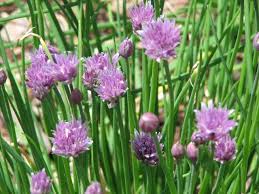


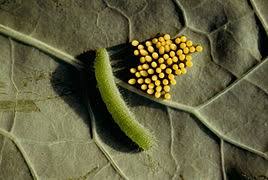
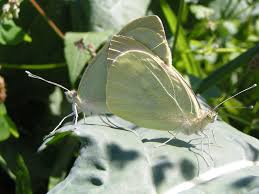


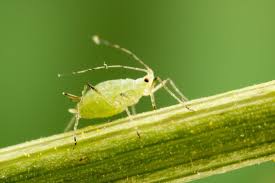
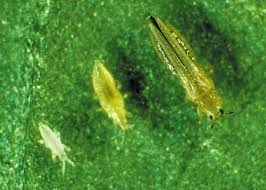


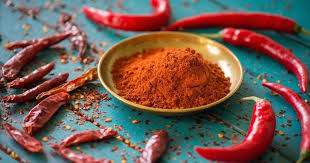


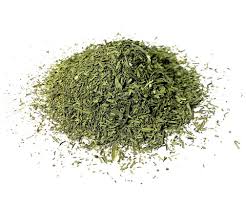



Comments